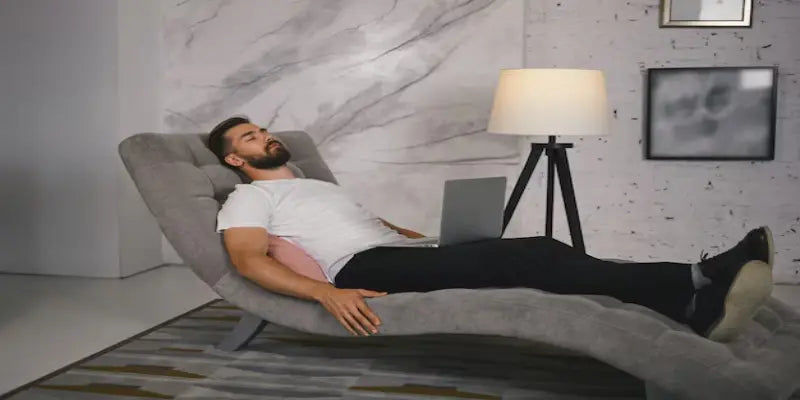
Why Do My Arms Go to Sleep at Night When I Lay Down?
Have you ever woken up to find that your arm feels numb or tingly, as if it's “asleep”? Most of us have had this experience. This is a common experience and usually not something to worry about. Until or unless, this is constant and you feel your arm is numb and tingly every single time you wake up from sleep. In this blog, we’ll discuss what happens in simple terms and how you can deal with it.
What Does “Going to Sleep” Mean?
When we say our arm is “Asleep”, we mean it feels numb and tingly. This also means that there is an obvious lack of sensation. This is called “Paresthesia”. When your arm or foot falls asleep, you get this weird, prickly feeling. This often happens because the nerves in the foot or arm are not working properly for a short time.
Many of us unknowingly believe that these problems arise due to a temporary loss of blood flow to an edge like hand and foot. This is one of the most common reasons as sometimes we put our arms in a position that puts pressure on blood vessels and the blood flow reduces in that area. Without enough blood, the nerves don’t get the oxygen and nutrients they need, which can make your arm feel numb.
When you lie down, especially if you’re on your side, you might put pressure on your arm or the nerves in your arm. This pressure can temporarily block the nerve signals, causing that numb feeling. The link from the mind to the nerves in the body traverses through a route of well-known pathways, such as the wire system. Unfortunately, if these links face any obstacle or get disrupted, then that body part might feel tingling, numbness or any uncomfortable feeling that can affect the arm or hand or any other body part.
Sometimes, nerves can get squeezed or compressed. This can happen if you’re sleeping in a way that presses on your arm, shoulder, or neck. The blood supply along with veins and arteries run together with the nerve that is accountable for transmission. Sometimes the whole blood supply might be getting obstructed due to varied reasons. This may also result in this issue.
What Can You Do About It?
If you notice your arm starting to feel numb, try shifting your position. Sometimes just moving a bit can help relieve the pressure on your nerves and blood vessels. Using pillows to support your arm and keep it in a more comfortable position can help prevent it from going to sleep. Gentle stretching before bed can improve circulation and reduce the chances of waking up with numb arms.
Treatment and Diagnosis for Persistent Nerve Damage
Most of the time, a numb arm when you’re lying down is harmless and goes away on its own. However, if this happens frequently, or if it’s accompanied by pain, weakness, or if it lasts a long time, it might be a good idea to see a doctor. They can check if there’s an underlying issue that needs attention.
To eliminate the problem, it is mandatory to evaluate the complete symptoms of this illness. Also, the help of a neurologist might be necessary. It also required taking Imaging of anatomy of the neck and other body parts or MRI or computerized scans can tell the reason.
Most importantly, the upper body needs to be comfortable during sleep. The elbow and wrist should be neither extended or flexed for long-drawn-out periods throughout the night. On the other hand, if the people are feeling discomfort after waking up, it could be problematic. Excessive sleeping pills or alcohol may also lead to mutilation or no-sensation issues.
Wrists, hands, and arms should be neutrally positioned while sleeping. Splints or wrist braces, anti-inflammatory drugs, non-steroidal and local corticosteroid injection may be supportive. When a person faces severe symptoms then there might be a loss of sensation, carpal tunnel release via surgery may give instant relief to the hand.
However, all these things might be secondary if proper precautions are taken from the start. Choose a good quality pillow as per your needs to not face any such health issues and get a good night’s sleep. If you don’t choose the right pillow, then the people might spend the whole night rolling from side to side.
Conclusion
Your arm going to sleep at night is usually due to pressure on nerves or blood vessels. Changing your best sleeping position and using supportive pillows can help. If it happens a lot or is causing you concern, a visit to the doctor can give you peace of mind.








